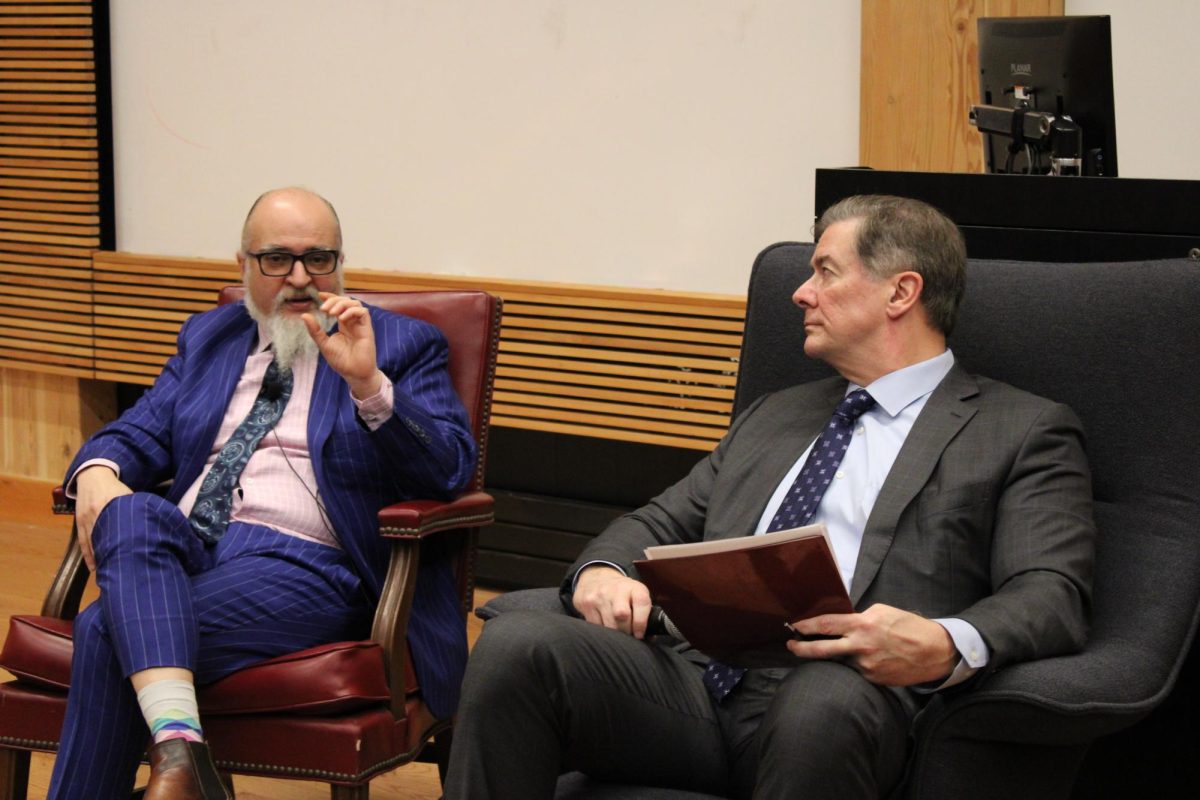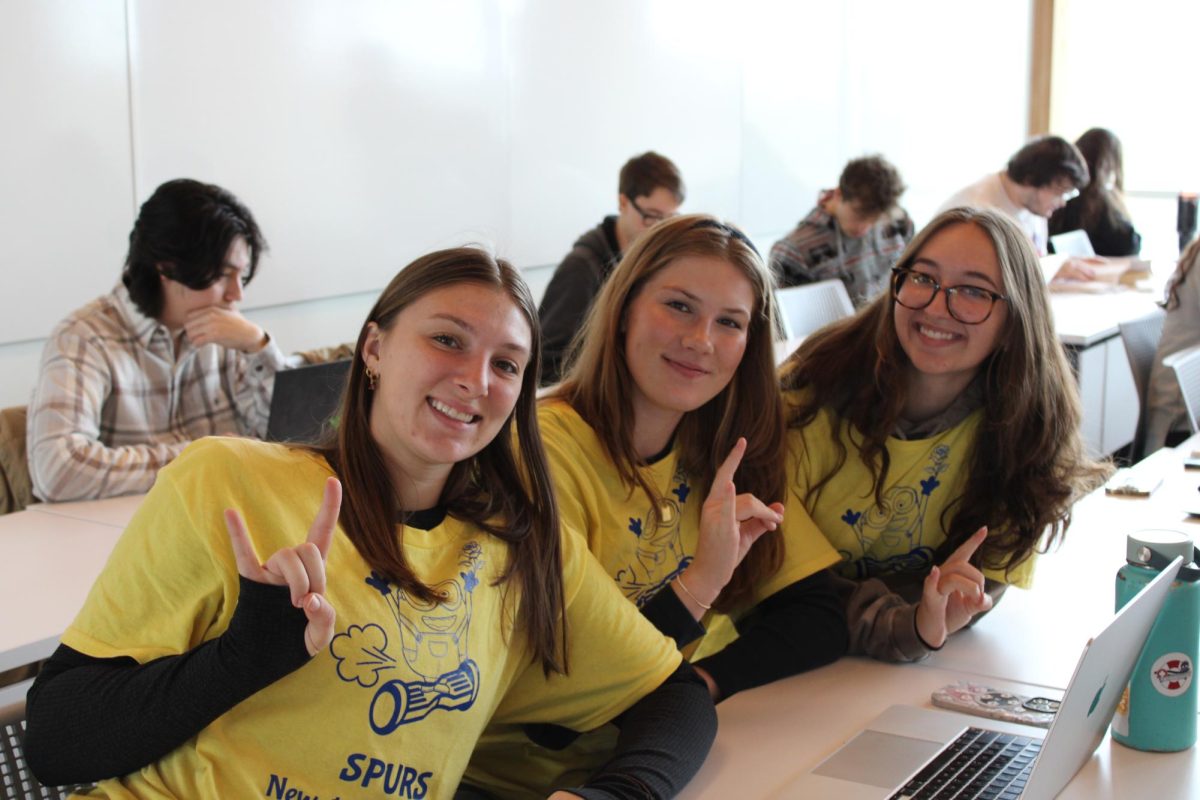Thursday October 22, students had the opportunity to watch Forbidden Planet as part of the Classical Myth Film Series. The series began as a way for students taking Classical Myth to see how stories of the past have influenced modern day media.
“For several years I’ve enjoyed attaching film series to my courses, as a way of building the community of the class, inviting the larger community to take part, and introducing students to what’s called “˜reception studies,’ the study of how later works–e.g., film and video, the modern novel, the graphic novel–transmit and transmute ancient sources. The classical myth series in particular is attached to CLAS 1305 Classical Myth, as an optional way for those students to see how ancient Greek and Roman myths have influenced modern storytelling. It’s also simply a fun way to spend a few hours each week,” said Benjamin Stevens, a professor of classical studies at Trinity.
The movie, which can be regarded as a classic film to today’s viewers, takes place in an imagined future where planetary travel is a common practice.
“Forbidden Planet is a “˜classic’ in a modern sense, a foundational modern science fiction film that is beautifully shot and intelligently constructed,” said Stevens.
Students who went to previous movies in the series enjoyed them and decided to keep coming.
“I started coming here and I’ve come back every Thursday,” said Carl Teegerstrom, a first-year at Trinity.
The series is open to students outside of the class and the films have been a real draw, especially last week’s showing of O Brother, Where Art Thou?
“That one was really good so I came back expecting this one to be just as good,” said Alyssa Alvarado, a first-year at Trinity.
Forbidden Planet can be interpreted to represent both a Shakespearean reworking and as a Aristotelian tragedy.
“In terms of reception studies, its plot has been analyzed primarily as reworking Shakespeare’s The Tempest–a planet (like an island) controlled by a man with access to mysterious powers (like Prospero) and whose daughter (like Miranda) falls in love with a member of a marooned crew (like Ferdinand), etc.–but more recently it’s been read as representing a mid-twentieth century understanding of Aristotle’s view of the genre of tragedy: in particular it can be read as a version of the Oedipus myth, in which a man’s intelligence blinds him to his responsibility for a tragic situation,” said Stevens.
The film series will continue throughout the semester with a wide variety of films.
“Coming up are Spartacus, in time for a biopic about screenwriter Dalton Trumbo; Black Orpheus, a breathtaking retelling of the Orpheus myth at carnival; Blade Runner, which develops an ancient and Miltonic image of human beings, fallen angels and their creator; and Disney’s Hercules,” said Stevens.
A similar film series will begin in the spring semester of 2016 in conjunction with the Afterlives of Antiquity class.
“Next semester’s CLAS 1315 Afterlives of Antiquity will have an attached film series, focused on the course themes of journeys into the underworld and encounters with the dead in films like Atonement, Interstellar, Pan’s Labyrinth, Se7en, and Silence of the Lambs,” said Stevens.
The series is held on Thursdays in the Richardson Communications Center room 320 and are announced in Leeroy.







